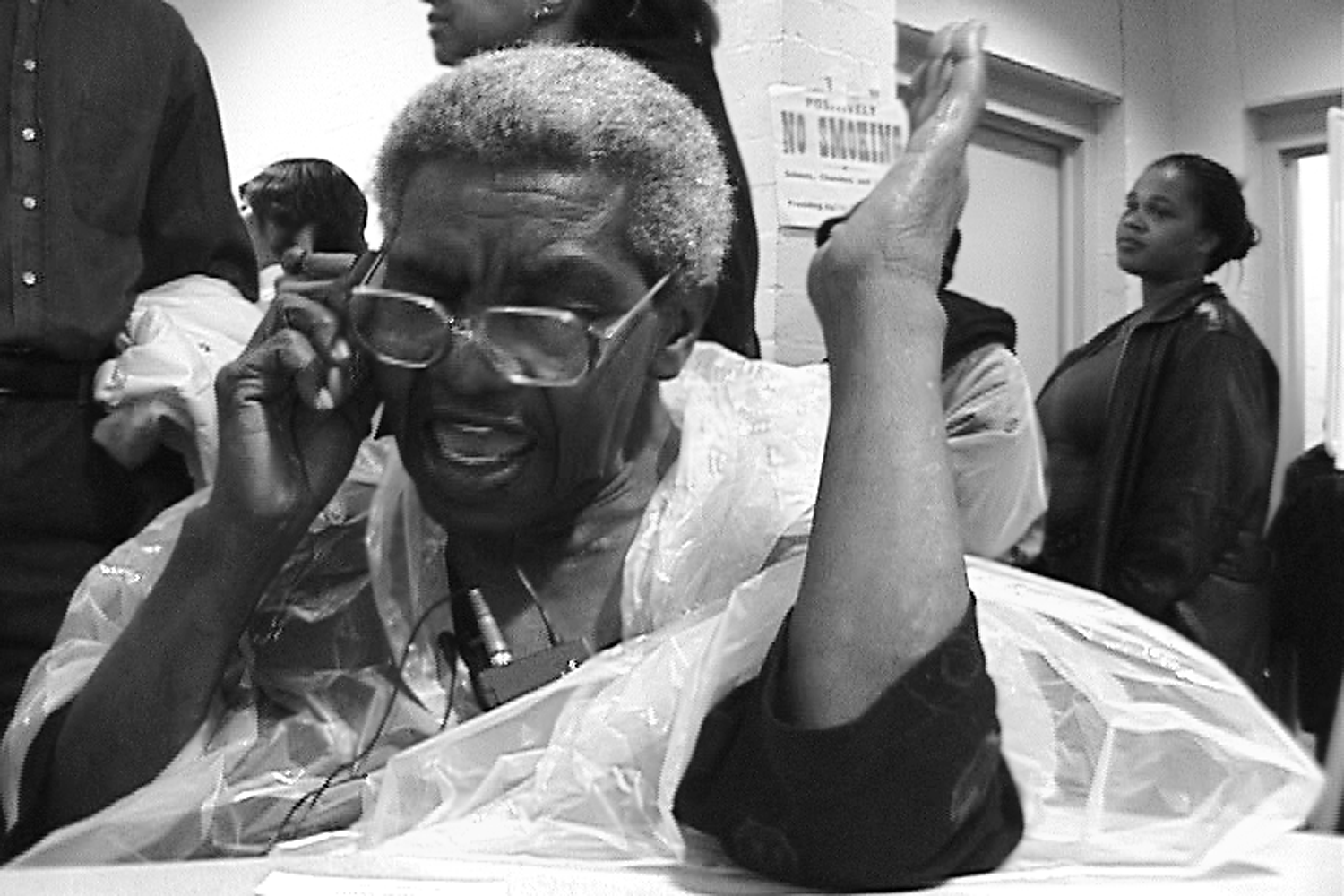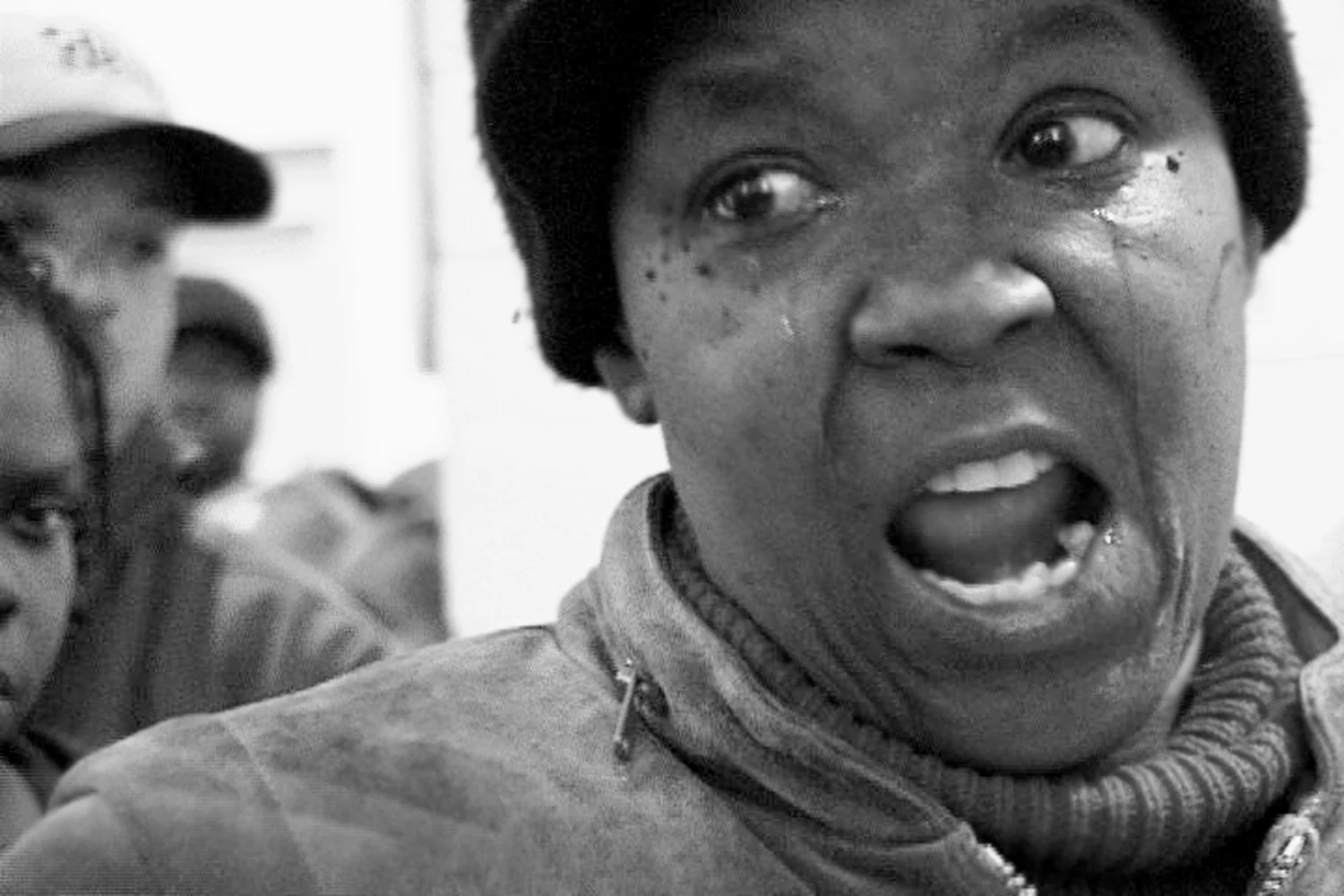By Tiffiny Kaye Whitney
L.A. Splash Magazine
At 7:15 AM on November 2, 2004, lines for the national election are already long and full of people waiting to have a say on who the next president of the United States should be. Though the wishes of swing-state Ohio have come to fruition in the form of a heavily campaigned high voter turnout, reality sets in. The election board apparently hasn't planned appropriately for the explosive expansion of citizens eager to perform their civic duty.
Lines are an embarrassing hour and a half wait and it's raining. Voters are restless, angry, and upset. Some of them have to get to work, and others just have better things to do with their time than wait an hour and a half for a punch card. And what's worse is a lack of voting machines and officials to operate them. Some are turned away.
In the words of councilwoman Fannie Lewis, the heroic crusader of this short film, "We've prayed for rain but forgot to bring an umbrella." And strangely enough, the entire situation feels almost intentional as if it's meant to deter voters from having a say.
While it sounds like a fictional, or at least antiquated tale of attempted disenfranchisement, November 2, 2004 was exactly this frustrating for the citizens of Cleveland, Ohio's Ward 7 on the city's east side. To prove it, 'No Umbrella: Election Day in the City' is a disturbing look into this electoral disaster suffered by voters who were coincidentally poor, black, and mostly Democratic during an election year when the incumbent (and subsequent winner) was Republican. An official selection of the 2006 Sundance Film Festival, Lara Paglin's 26-minute documentary is sure to rile viewers of any political affiliation.
Though the larger story centers around the utter lack of organization on Election Day, and possible racially and politically motivated sabotage, main focus is given to Fannie Lewis, a courageous black councilwoman who takes it upon herself to fix the situation. Unfortunately, her efforts appear thwarted at every turn. Hours and dozens of phone calls later, Fannie becomes just as upset as those she is trying to please. Given the run-around by numerous officials, and ignored by electoral councilman Michael Vu, more machines finally arrive, but inserts appear only at the behest he city's mayor' who, while she seems interested in pleasing her constituents, also appears less sympathetic than you might expect from someone who's own job lies in the hands of these voters in the future.
Hand-held and conventionally jumpy, the cinematography is an excellent choice for this subject matter. It captures the immediateness and frustration of this fateful day, and the lack of focus and ever-changing perspective. One minute we're following the exploits of Lewis in her endeavors to help voters. The next, we're listening to reporters covering the disaster, or voters voicing their frustration that it's taken two hours to vote. For a 26-minute film, the viewer is just as tired as the voters for the lack of action being taken, and frustrated as if the same amount of hours have spanned in real-time waiting for a resolution that comes far too late in the game for forgiveness.
Right, left, or in-between, 'No Umbrella: Election Day in the City' is sure to move viewers against foul electoral practices' whether the events of November 2, 2004 in Cleveland, Ohio were intentional political scams or not. It shows disorganization from the top to bottom within our country's own electoral practices, and proves that such actions (or lack thereof) within a nation such as the United States are unacceptable. And while filmmaker Paglin moves people to action, this chronicle into the plight of voters on one day fails in one thing' giving its viewers an opportunity to take action themselves and preventing future mishaps. We know the problem, but are given no options on how to fix it.



